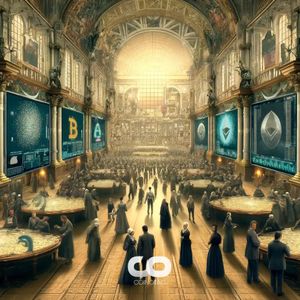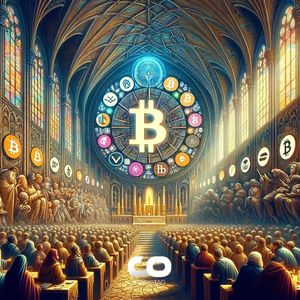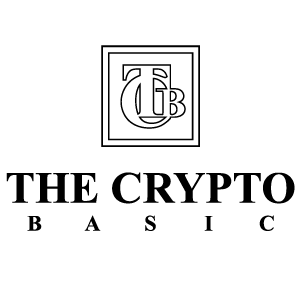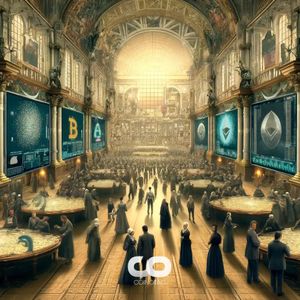

Bitcoin: A New War Is Beginning
Summary A new NFT project called Ordinals was just launched that utilizes Bitcoin's block space. This project is very controversial within the Bitcoin community and in some ways harkens back to the block war from several years ago. In my view, this new civil war within the BTC community is probably going to be fought through transaction fees. This will ultimately be very bullish for BTC miners in my opinion, but it does potentially create problems down the line. Bitcoin ( BTC-USD ) could be heading for another civil war. It would not be the first time the Bitcoin community has engaged in an internal conflict, but this one could be just as impactful. In many ways, what has given the idea of Bitcoin credence is the faith that it is a monetary system without censors or permission for usage. But every few years the Bitcoin community faces an internal challenge and I believe we now have a new one that could ultimately turn into a much deeper conversation about what Bitcoin is and what its future is going to look like. In this article, we'll dive into what Ordinals is, why Ordinals exists, why Ordinals is controversial for Bitcoiners, and we'll assess what impact a battle over Ordinals could have on the price of Bitcoin down the line. What is Ordinals? Simply put, Ordinals is an NFT project on Bitcoin. It works by creating a numbering system for each satoshi that is mined when new blocks are created. A satoshi, or sat, is the smallest unit of division of a full Bitcoin. Each one is worth a fraction of a penny at $24K BTC. These sat identifiers make it so that some sats have more unique or rare numerical properties than others - you can probably think of it in the same way that paper dollar bills can be collectible based on rare serial numbers. Through Ordinals, Bitcoin's block space is now being used to create NFTs through inscription on this new satoshi numbering system. Ordinals was created by Casey Rodarmor, a software developer who saw a need for NFTs that are stored on blockchains themselves rather than off-chain. Casey explained that problem well in his blog post about inscription with the Ordinals project: For an NFT to be a digital artifact, it must be decentralized, immutable, on-chain, and unrestricted. The vast majority of NFTs are not digital artifacts. Their content is stored off-chain and can be lost, they are on centralized chains, and they have back-door admin keys. This is a legitimate concern , and it is something that I've explored as well in Blockchain Reaction. While I believe there is a perfectly viable solution to the off-chain data problem that doesn't necessitate Bitcoin's block space being utilized for monkey jpegs, I'm not actually opposed to Bitcoin being adopted in other ways that are bit more interesting than just "stack sats and hope the price goes up." Some Important Bitcoin Voices Don't Like This Ordinals has created a debate in the Bitcoin community over how the chain's block space should be utilized and which type of transactions have merit. For the purists, Ordinals is essentially sacrilege and against what Bitcoin's founder Satoshi Nakamoto would have wanted. There is some merit to that argument. Back in late 2010, Satoshi Nakamoto was not on board with an idea to create a DNS-like service through Bitcoin because of the scalability problems that would come with trying to pile too much data into a small block space. This is what Nakamoto said in the Bitcoin Talk forum at that time: Bitcoin and BitDNS can be used separately. Users shouldn't have to download all of both to use one or the other. BitDNS users may not want to download everything the next several unrelated networks decide to pile in either. The thinking that Bitcoin should be protected from the potential spamming of the block space has even led to some Bitcoin developers entertaining the idea that miners could censor transactions related to Ordinals; which would be a very big deal if it were to happen as it could be argued that censoring what happens on the chain is very much against the original ethos of Bitcoin. But if it were to actually happen, censoring transactions on-chain wouldn't be the first time Bitcoin has failed to live up to the original intention. The Last Civil War The original goal of Bitcoin was to be a peer-to-peer payment network and that has simply not been the case. In fact, it could be argued that the HODL approach to Bitcoin actually goes against developing true utility through usage. In my view, a big reason why some in the Bitcoin community have adopted a HODL approach to Bitcoin is precisely because using the network for peer to peer transactions at the base layer is not actually feasible at scale. This is why the "Bitcoin is digital Gold" narrative overtook the "Bitcoin is digital cash" narrative. Bitcoin's inability to scale at the base layer is why the Lightning Network exists. And the scaling problem is also why Bitcoin Cash ( BCH-USD ) exists. BCH is the product of the last Bitcoin civil war several years ago that consisted of two camps; "big blockers" and "small blockers." When BTC was originally constructed, there was a 1 megabyte block size limit at launch. This is very small and only allows about 7 transactions per second on the base layer chain. In the years leading up to the 2016 halving, there was discussion among the core developers about increasing the block size from 1 MB to 20 MB. This move was contested and the "small blockers" ultimately won out. The "big blockers" hard forked BTC and created BCH, a chain with a block size limit of 8 MB. And that gets us to the possibility of another Bitcoin fork. Is Ordinals a controversial enough topic that it could lead to Bitcoin forking yet again? I don't think that I'd go that far yet. But this argument over block space could conceivably escalate in a different way. A Fee War is More Likely When a user wants to create an Ordinals NFT, they have to pay a higher transaction fee to inscribe the data in a Bitcoin block. If Ordinals is successful, we're going to see an increase in the transaction fees that are paid to Bitcoin miners. Those fees are generally a very low percentage of the total block reward but we are starting to see that percent tick up since Ordinals was launched in late January: Transaction fees as % of BTC Block Reward (Hashrate Index) If the Bitcoiners who don't like the Ordinals project want to stop what they view as network spam with a true free market solution, they're going to have to start using the base layer chain more and be willing to pay transaction fees that are large enough to incentivize miners choosing their transactions as the priority. The risk to a fee war would be transaction fees that become so onerous that only very large value transactions can happen on the chain. Which could theoretically disincentive opening Lightning Network channels enough that it actually slows adoption of the chain's scaling layer. Main Takeaways I don't think Ordinals is a flash in the pan. We saw what the NFT craze in 2021 did to Ethereum's (ETH-USD) transaction fees: ETH Native Unit Transaction Fees (Messari) Ordinals is at the beginning of what it will become and we're already seeing NFTs globally starting to catch a bid again. Unlike the past bull market in NFTs, Bitcoin won't sit this one out. Ordinals is now a major point of conversation within the Bitcoin community. How the opponents of that block space usage deal with it is yet to be seen. But if there is a competition brewing for block space, fees are likely going to have to increase considerably. This will be very good for Bitcoin miners and probably Bitcoin's nominal dollar price as well. It just might not be great for actually using Bitcoin for payments. But the HODLers don't seem to be using it for that anyway.













